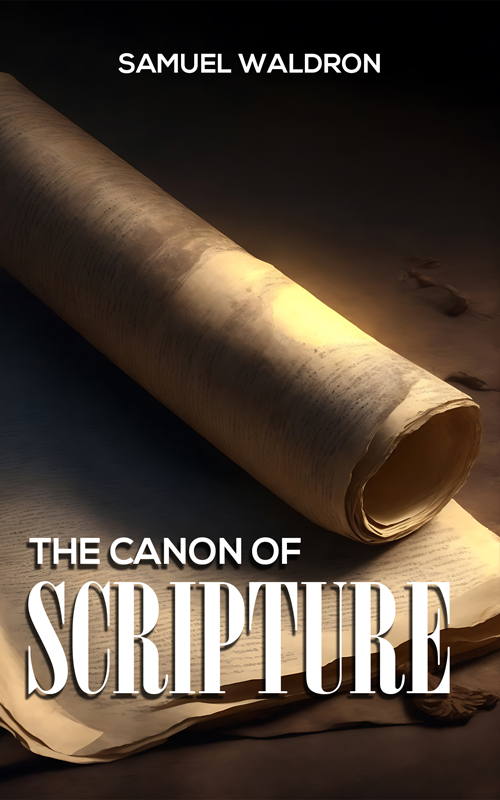 by Samuel Waldron
by Samuel Waldron
in ePub, .mobi, .pdf & HTML
Is the idea of a canon, a list of sacred writings which are looked at possessing divine authority, itself biblical? In other words, Does the Bible teach the idea of a canon? This question is even more urgent to answer in light of the fact that the term canon, is never used of a list of writings possessing final authority in the Bible.
While the term, canon, is never used of a list of sacred writings in the pages of Holy Scripture, the idea it represents is present everywhere in the New Testament. This is another case where church history has properly given us a word to describe a biblical idea. Similarly, the term, Trinity, is not itself biblical, but it brings out and summarizes a biblical idea. The idea of a canon, an official collection of sacred writings, is logically implied in any view of Scripture which regards Scripture as possessing unique, one-of-a-kind authority. This view is especially suggested by any view of Scripture which regards the Holy Scriptures as divine, infallible, and inerrant.
This kind of view is, however, the Scripture's own view of itself. The New Testament everywhere views the Old Testament not only as having unique authority, but as divine, infallible, and inerrant. This view of the Old Testament requires by the strictest logical necessity the idea of canon. The reason for this is that this view requires a clear distinction, an emphatic boundary between what is and what is not Scripture. A boundary line of this character is drawn by means of the canon, the list of those books which are different than all others in that they are divine and inerrant. Such a distinction, such a boundary line can be provided only by the idea of canon.
-----
Table of Contents
PART ONE: THE APPROACH TO THE CANON
PART TWO: THE DEBATE OVER THE CANON
PART THREE: THE ATTESTATION OF THE CANON
PART FOUR: THE FORM OF THE CANON
PART FIVE: THE ACCEPTANCE OF THE CANON
II. The Early Heresies
